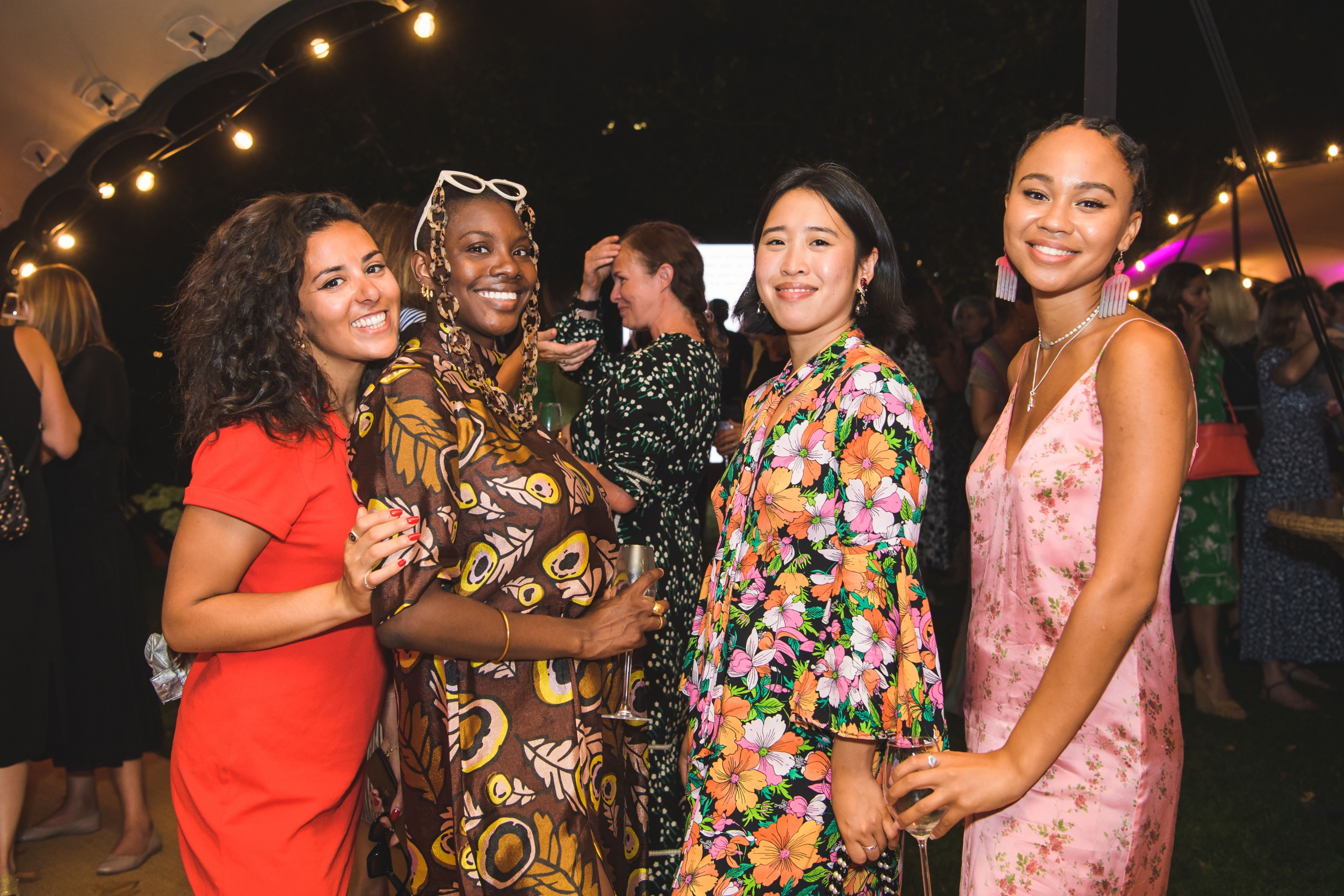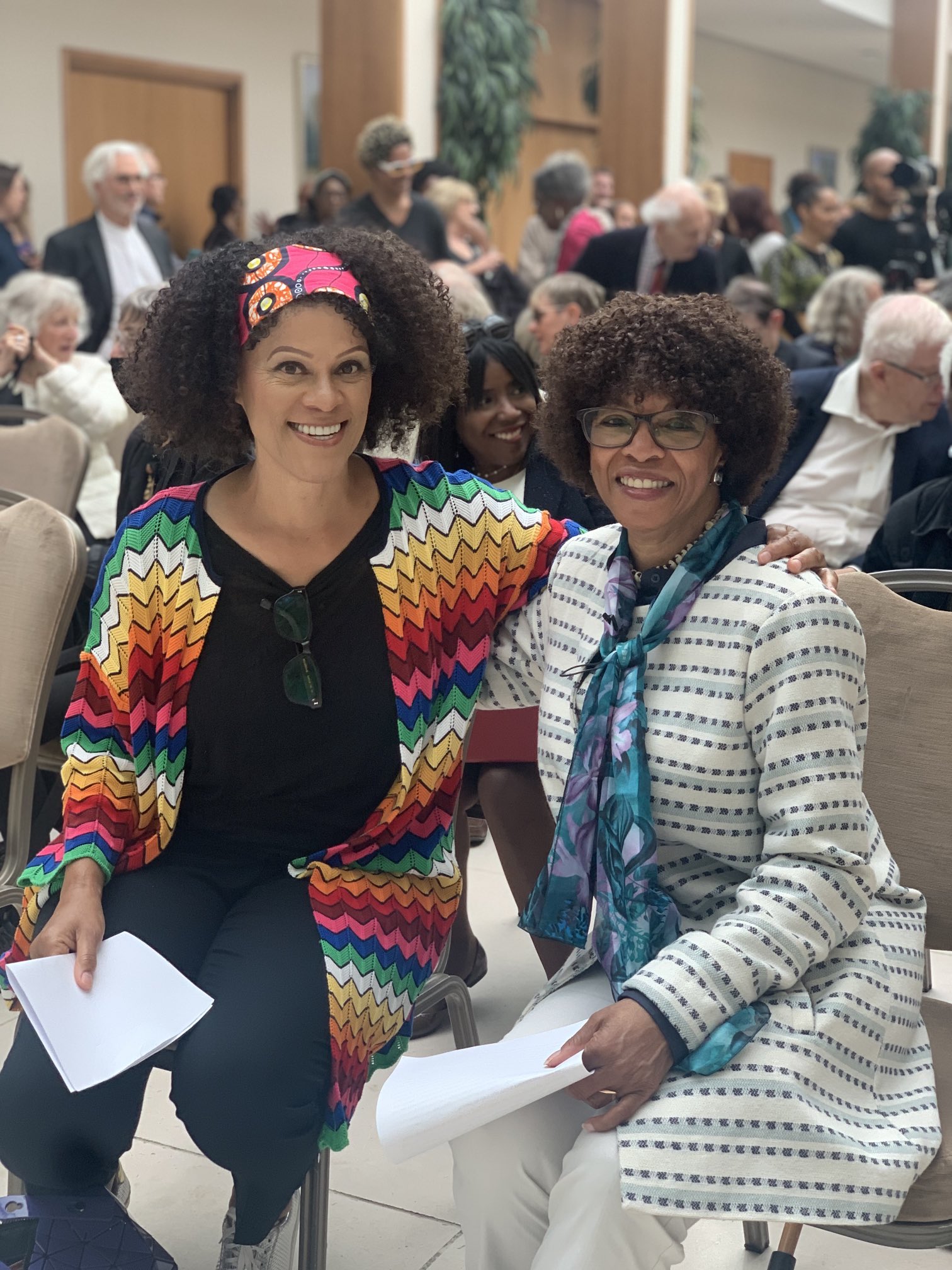You are viewing your 1 free article this month. Login to read more articles.
Return of live events hailed a great success but concerns remain ahead of winter
The return of live events including bookshop tours and award ceremonies in recent months has been hailed a great success for the publishing industry, however there are concerns over whether this will last into the winter when more events will have to be held indoors.
In recent months, book launches, tours and live previews have been gradually making a post-lockdown comeback, with events company Fane seeing demand for tickets higher than before the coronavirus crisis began. High- profile events included a London gathering to see Margaret Busby accept her London Book Fair Lifetime Achievement Award, while the recent Women’s Prize ceremony was one of the first in-person literary events of the year.
Kate Mosse, novelist and co-founder of the Women’s Prize, said it was “lovely to see everybody back in person” for the annual awards last month, which were held in Bedford Square Gardens and saw Susanna Clarke win with Piranesi (Bloomsbury).
She told The Bookseller: “Last year we did it all online and this year we had got two dates that we’d reserved, one in July and one in September because we made the decision that we really wanted to celebrate in person and that we’d rather do it later in order to achieve that for all the authors and everybody involved in the prize, but also the readers and publishers.”
She said there were a “lot of decisions” on how they were going to run the event and manage the numbers. The fact the event was held in the gardens with a tent made it “lovely and open and nice to spread out”.
“We just wanted to say the Women’s Prize is back,” she said. “I’ve never had so many messages from people...it did feel very special.”

Iman Amrani, Yomi Adegoke, Zing Tsjeng and Mikaela Loach at the Women's Prize ceremony
Mosse noted that launching her own novel in January this year to 1,500 people on Zoom was quite strange as “you don’t really feel them there” compared to the audience of 2,200 people at the London Palladium on 3rd October when she interviewed Stanley Tucci (pictured below, with Mosse, at the Women's Prize).
“It was amazing and I think that is what people have been missing, that actual standing in a shared space, to be able to turn to someone you don’t know next to you and say ‘this is great’ and that is what I think people are really looking forward to having back properly.”
However, she does think it’s important to keep hybrid events going, while a lot of people still can’t travel, or are more concerned about busy and confined spaces. “Having done several different sized things recently I think people are coming back at different paces at the moment...I don’t think we know really how it’s going to settle until next year,” she said.
Author Robin Ince, who is touring 100 bookshops this autumn in support of his new book The Importance of Being Interested (Atlantic) was likewise cautious. “I think it is right to be a little hesitant, to think carefully, I think people's confidence will get shaken if we see new spikes and I also think we should be careful to remember that we still have very high rates of Covid compared to most of Europe, I am not blasé,” he said.
Nevertheless, he welcomed the return of live events and the “glee and delight in audiences’ eyes”. “It is also lovely to be visiting new bookshops that have sprung up in lockdown — The Book Stop in St Helens or Mount Florida Books in Glasgow, both of which sold out almost the moment tickets were available. The Laugharne Weekend with Cover to Cover books felt particularly dynamic.”
He says some events are selling “faster than ever” but he is all too aware of people with health conditions, or carers, who are worried about being in rooms with people not wearing masks. “I am encouraging the shops as much as possible to encourage masks for those who can wear them as we are still in uncertain times and I want people to feel as safe as possible — though I have found it hard to do book signings where I am behind perspex and they are behind masks, it can take a lot of time to work out who they want the book signed to. Every event I have seen has been great, performers and authors and audience have a stronger connection than ever.
“I think if we keep taking precautions and we pay attention, things can keep opening up and events can get bigger, but we need individual responsibility to play its part...it is such a joy to be back performing with people in a room after 18 months of not being able to do what I love, and I would rather that was not taken away from me again by laziness and thoughtlessness.”
There does appear to be an appetite for live events, with Fane saying ticket sales are higher than pre-pandemic figures. Founder Alex Fane told The Bookseller: “188,000 tickets have been sold for Fane's autumn/winter programme. This is our highest by far. Demand is definitely significantly higher than when compared to pre-pandemic levels.”
He said the atmosphere has been “absolutely incredible” adding “the unique feeling of being in the room cannot ever be beaten". The company has also seen a trend in customers who have recently attended a live event booking another one very soon after. “We think that shows confidence is growing in people once they have been to their first event for some time. Our online option also remains very popular, and as the summer draws to a close we are seeing online numbers increase rapidly as the cold weather returns,” he said.
Georgina Moore, deputy m.d. at Midas PR, which organised the London Book Fair Lifetime Achievement Award for Margaret Busby at the Hurlingham Club last month, agreed, saying she hopes the success of the event “reminded the industry what is has been missing”.
“There was a palpable sense of excitement amongst the industry, a genuine joy in being reunited with old friends and colleagues, and to be able to honour an industry great. Attendance was incredible and many people stayed the full three hours,” she said. “There is so much coming up events wise which the Midas team is looking forward to. There will be widespread author events across the UK for Bookshop Day on 9th October and Cheltenham Literary Festival, opening this weekend, has an incredible programme. Midas led the way on pivoting to virtual events at the beginning of the pandemic, with the Hamnet campaign winning awards for its virtual event shift, but we could not be happier to see face to face events thriving again."
 A number of recent events have asked ticketholders to display their NHS Covid Pass or a negative test result, including the LBF event and the upcoming Hay Festival Winter Weekend.
A number of recent events have asked ticketholders to display their NHS Covid Pass or a negative test result, including the LBF event and the upcoming Hay Festival Winter Weekend.
Cristina Fuentes La Roche, international director at Hay Festival, said: “Indoor or outdoor, all audiences, speakers and performers wish to feel safe and taken care of so they can focus on enjoying the event. As ever, it's our duty to ensure this is the case.” Hay will also be asking all guests over the age of 12 to wear their masks while inside marquees.
She said since tickets launched on Saturday for its Winter Weekend, demand was “extremely high” adding: “This was as much the case for our online passes as for our in-person tickets so the message seems to be that while many are looking forward to returning to live events, many others are happy to continue consuming their culture at home. Our opportunity is to offer the best of both with our events.”
She added: “While digital spaces have offered us so much in the past two years, nothing has yet matched the immersive experience of meeting with writers face to face. Festivals offer a further layer to this: when you are fully immersed in a curated programme it places you deep in a place of discovery and connection across genres and worlds. These encounters are impactful and lasting; they can spark fundamental changes within us and turn the solitary action of reading into a shared experience of storytelling; something that binds us in a way that feels more vital than ever. A festival is also what happens between the events; the location itself becomes a protagonist.”
Looking ahead, she said she was “confident” that demand for live events is there “and that they can be delivered in ways that are safe and sustainable, but there is no doubt that our world has changed and we must continue to adapt. Our industry can rebuild, but it will take time and, crucially, audience support. And we have learned a lot from the digital possibilities that will complement all our festivals in the future,” she said.















